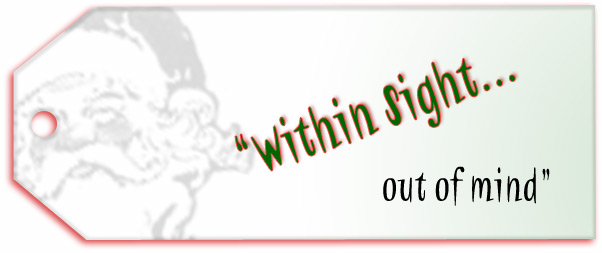
Once upon a time, way before I hit 30, I had the liberty of looking down on consumer culture. It was easy; I had no money to consume with anyway. When I went to Europe for a semester during college I had a student ID that let me into museums on the cheap or for free, but what did I do with my spare evenings? I went shopping. Mostly, I didn’t buy anything, but I went in and out of all sorts of stores. Shopping was like visiting an interactive museum of cultural mindset. I could pick things up, feel the texture and the quality; I could even sniff them. I let the products on the shelves tell me about the things people would spend money on and how the concerns of the people were different in each place I went.
Then, in July of 1991, I went to Prague. Communist rule had ended in Czechoslovakia just a year earlier. At night, the city was dark; no billboards, no flashing ads, no architecture lit in such a way as to really be an ad, just night. I thought this was nice, until I ran out of deodorant and had to go shopping. I went into what looked on the outside to be a store, but there were no aisles to walk up once I went inside, so I left. Where were the stores? I found another place and still there were no aisles. I could see products behind counters, but I couldn’t touch them. A counter person stepped up to me. After making wiping-under-the-arm motions I was presented with one container of roll-on deodorant. I don’t like roll-ons so I asked to see another kind. There was no other kind! This was the deodorant. So I bought the deodorant. Then I got a little mad. Whether I could afford to go out and buy or not, the abundance of buying choices was always around me. As much as I hated consumerism, it had so transparently formed my expectations that I couldn’t see it.
The Czechs I spoke with all seemed disgusted and shocked with the waves of goods appearing each day and the way this changed their world so quickly. Even in the short time I was there I could see the city changing. Advertising appeared and the quaintly gothic city center became dotted with billboards where females posed provocatively with merchandise. So there it was: “Democracy” means having a market economy and sex was right there to help get the goods moving. Welcome to political freedom. Now get ready to be paranoid about your thighs for the rest of your life.
It is through this Czech experience that that I am able to understand works by Lichtenstein and Warhol ---- quite possibly because of the irony behind the painter-less painting of a subject, something that I don’t need to go to a gallery to see. At this moment I need only take about 10 steps to admire a soup can or a cartoon. What never occurred to me was that these artists were seeing a great outpouring of manufactured, pre-packaged goods flood the nation after WWII. They didn’t grow up with supermarkets full of canned food and brands to choose from like I did. They were reacting to the sudden abundance and homogeny and how quickly this condition of plenty was happily assimilated as normal. When I shared my deodorant buying experience with my Dad, born in 1928, he said, “Well, yeah, that’s the way things always were...”
Warhol’s Campbell’s Soup Can (1964) is not about the form of the soup can in space. The can itself is a cartoon. That piece is about the label on the can. It’s a deliberate, simple, ironic jab at the flatness of buyable culture. Because the more choices we have, the more we have to turn up the volume on what makes one thing more buyable-looking than another. This is what shapes our mental environments in deep, intangible, and unavoidable ways. There is no lifestyle that exists outside the world of being a consumer. I’ve gone through stages of trying to not feed into the “American culture of consumption” by not using goods that exploit workers or animals or even bees. And you know what? I had to buy a lot of stuff to live like that.
One may feel uninvited to reflect deeply into one’s conscious or unconscious everyday life by the barrage of advertising information and products that surround us. But looking into the forces that shape our decisions doesn’t make one any less a part of what’s going on. There is no artistic commentary or standing apart from the larger culture that doesn’t somehow amount to reaction. The ironic jab I get from Campbell’s Soup Can says: “Within sight, out of mind.”